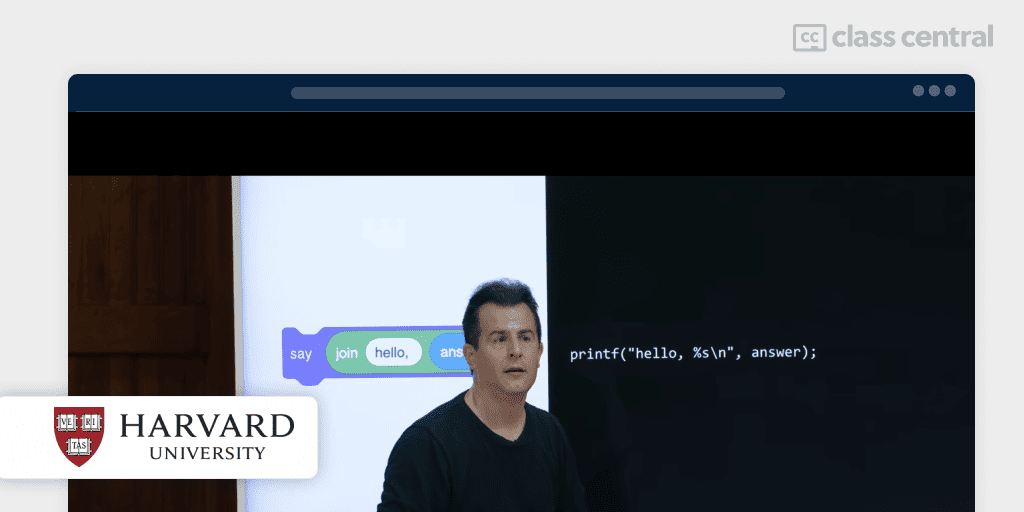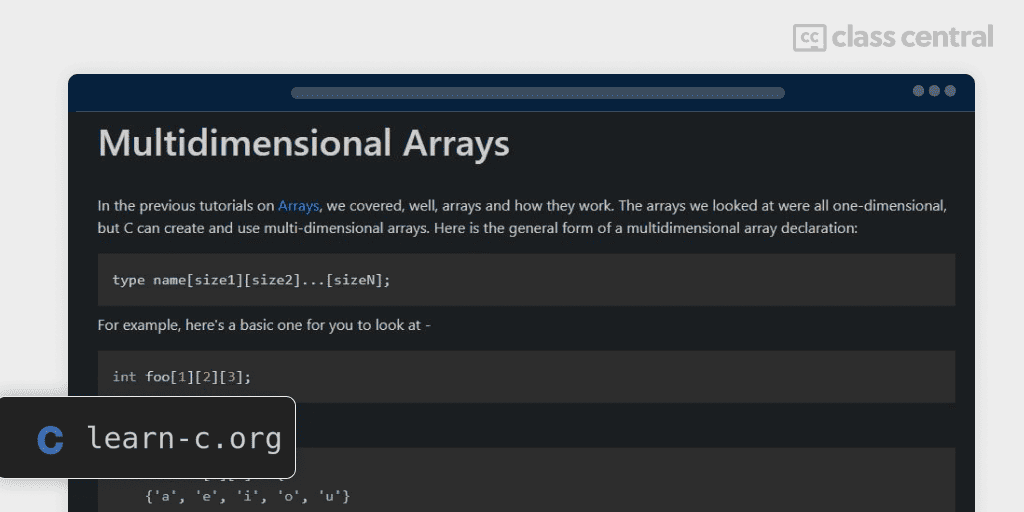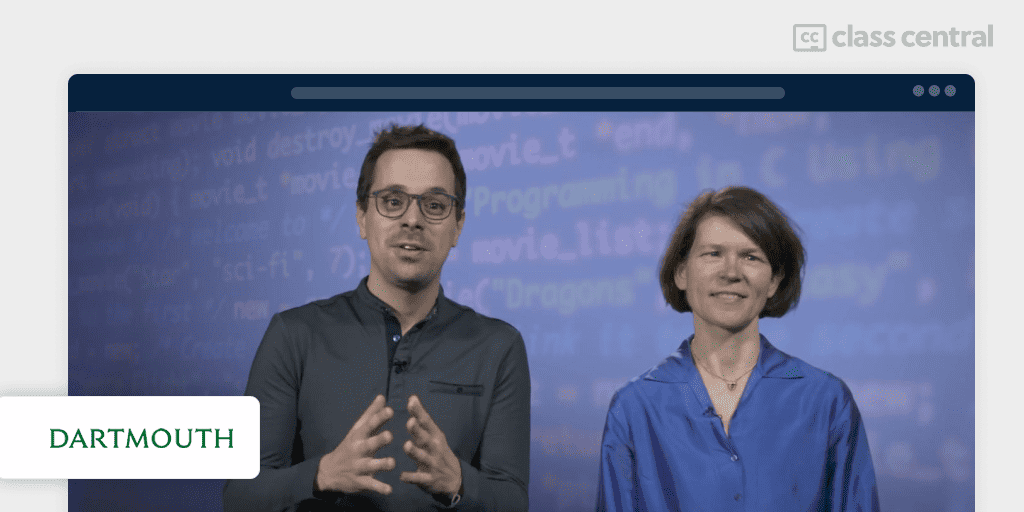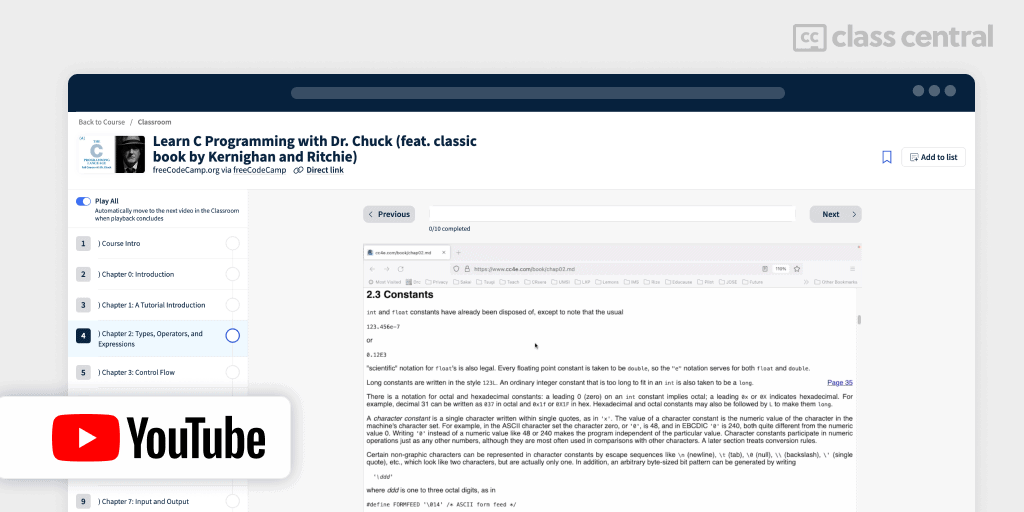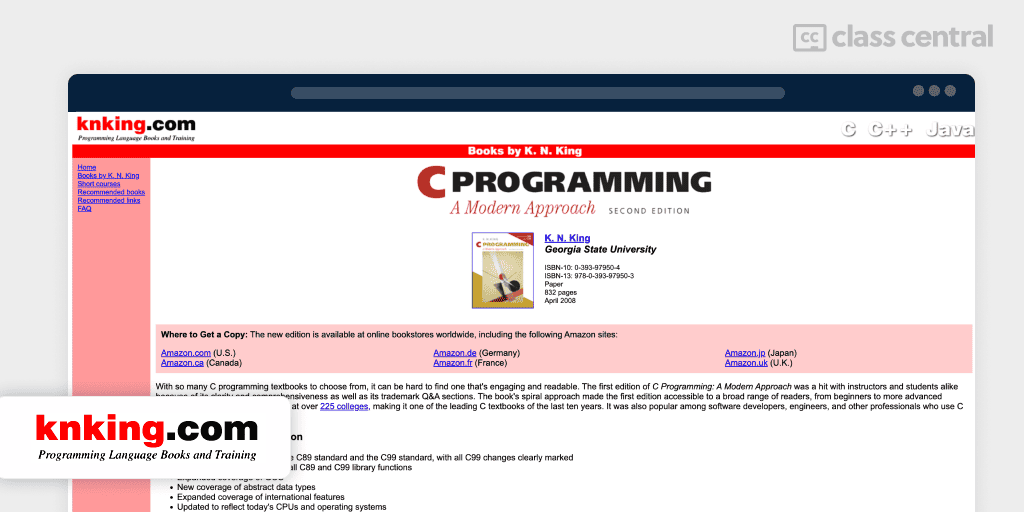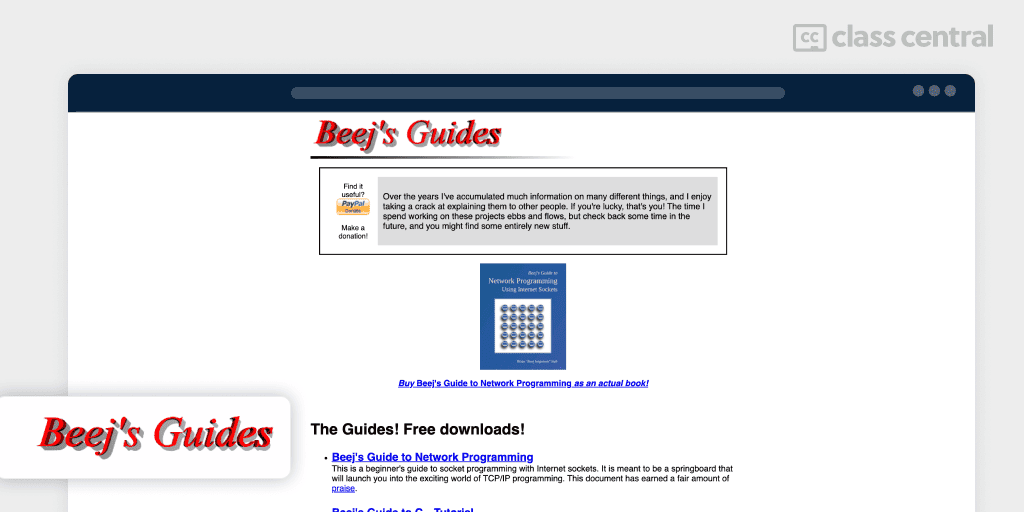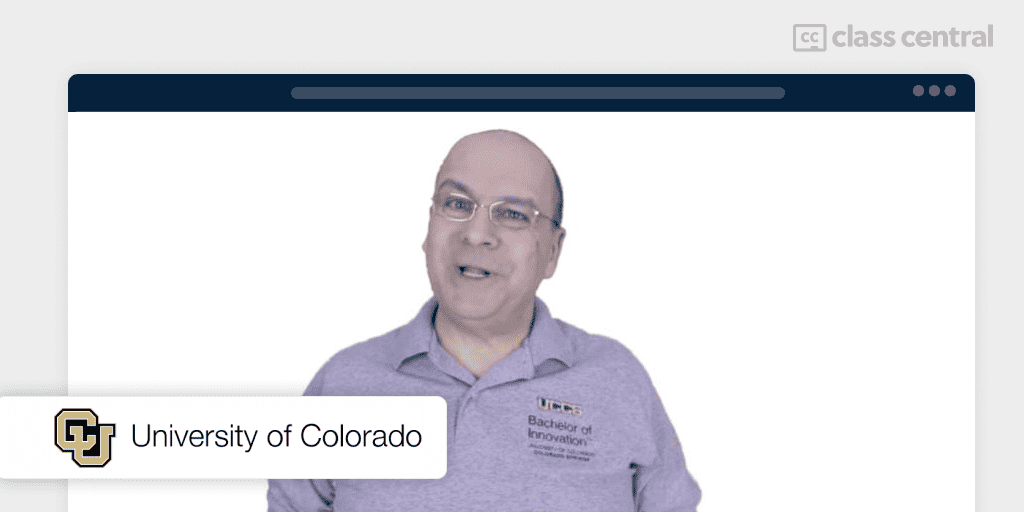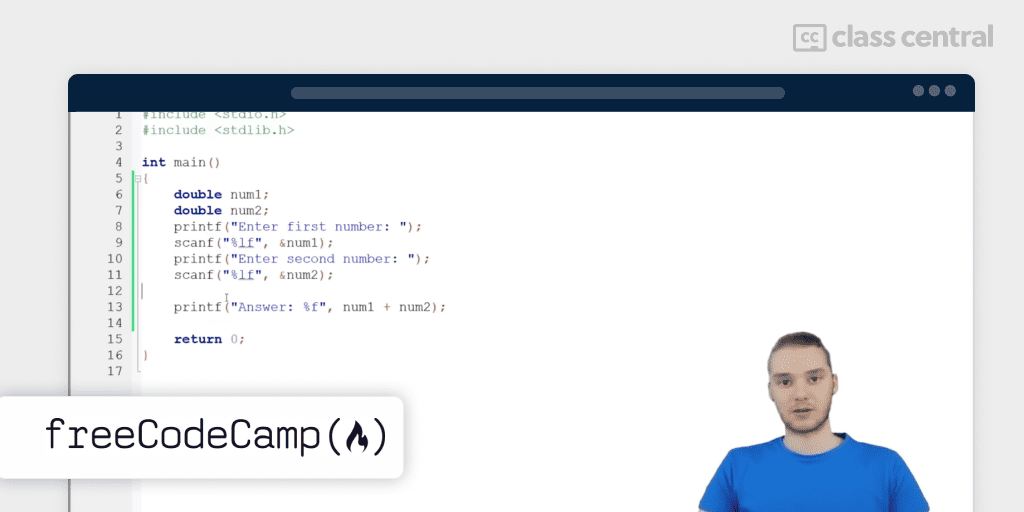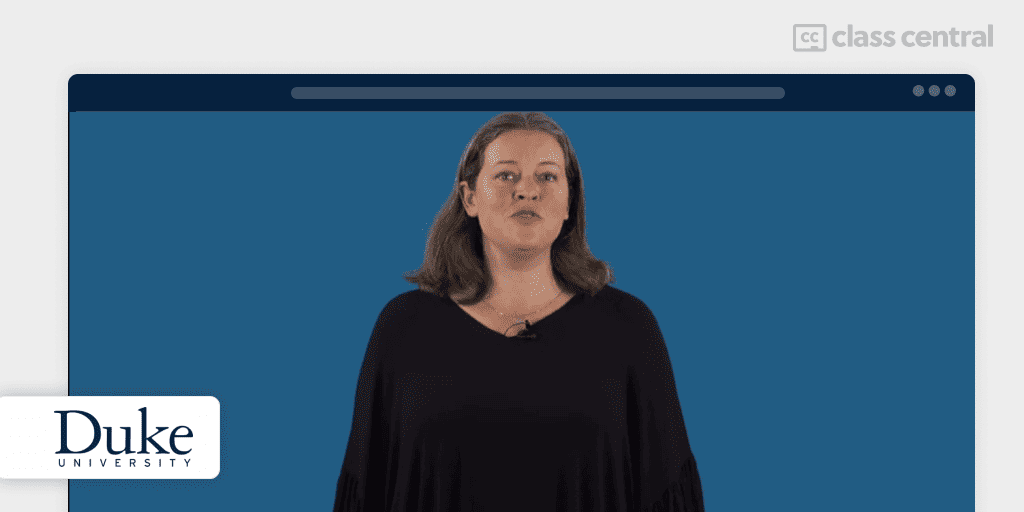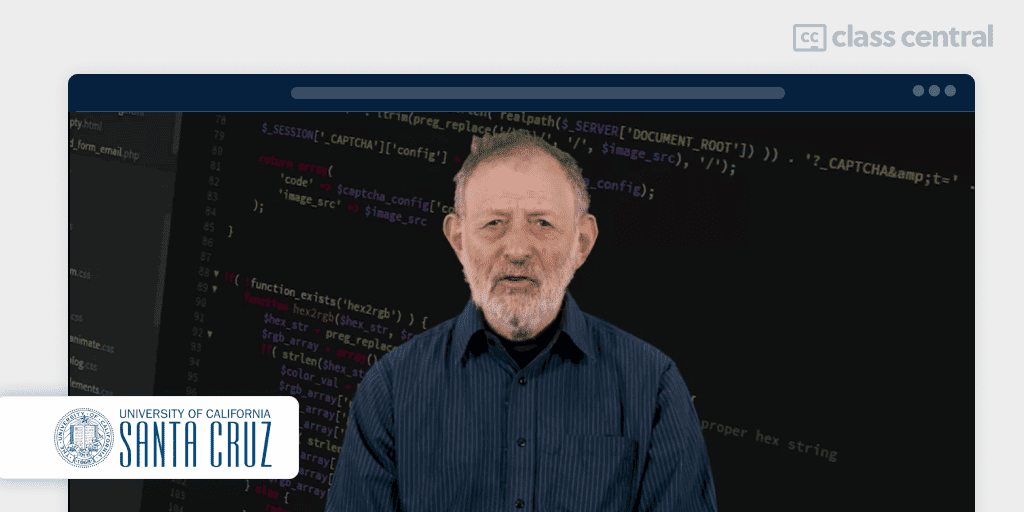10 Best C Courses for 2025: Code at the Core
Here are the best FREE online courses to learn C, the low-level procedural programming language with broad applications in computer science and software engineering.
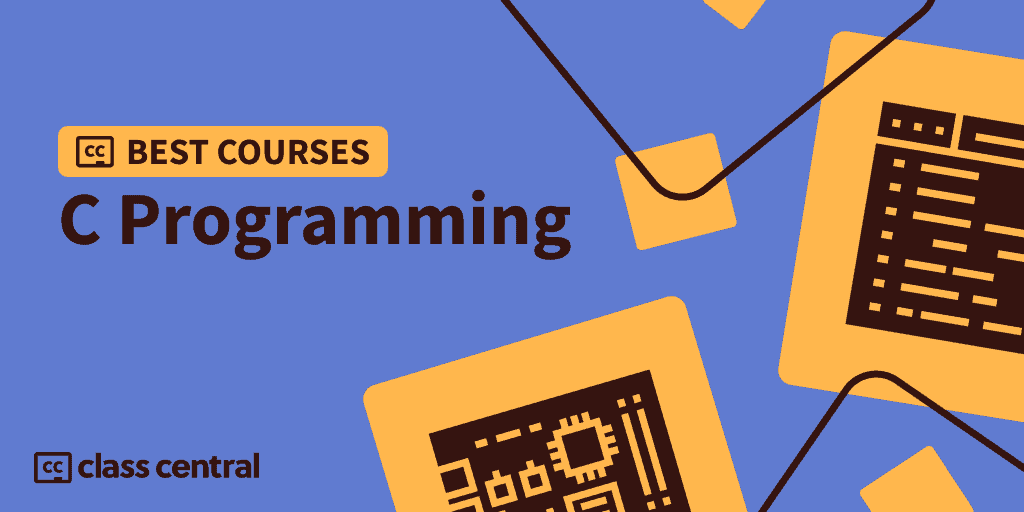
Despite its age, C’s relevance in the tech world is still going strong, boasting a developer community of 13.3 million. Yet, why is it so difficult to find a good introductory course for C, especially for newcomers to programming?
Well, I don’t know the answer to that question, but what I do know is that your search ends here.
In this Best Courses Guide (BCG), I’ve combed through the internet to bring you the crème de la crème of free or free-to-audit C courses. For those of you who are dipping your toes into the programming world for the first time, I’ve selected courses that offer a well-rounded education, not just in programming techniques, but in computer science principles as well. And for the seasoned programmers eager to add C to their repertoire, I’ve found courses rich with practical exercises and real-world examples to get your hands dirty.
Click on the shortcuts for more details:
Here are my top picks. Click on one to skip to the course details:
What is C?
C is a procedural programming language that operates closer to computer hardware, developed by Dennis Ritchie at Bell Labs in the early 1970s. It was designed for the Unix operating system, and thus had to strike a balance between efficiency and ease of use, enabling the direct manipulation of hardware with a syntax accessible to a broad range of applications. This balance has made C the language of choice for system-level programming across various platforms, such as MacOS and Linux operating systems.
From powering the operating systems that manage our computers to driving the embedded systems in appliances and vehicles, C’s influence is everywhere. C is the 10th most used programming language in 2024, according to Statista, just below C# and C++.
Learning C offers a pathway to a diverse and rewarding career in technology. According to Glassdoor, the estimated median salary of a C developer in 2024 is $130K.
What’s C++? And what’s the difference between C++ and C?
C++ is an extension of C that supports both procedural and object-oriented programming. Some key differences include:
- Programming Paradigm: C is procedural, while C++ supports object-oriented programming.
- Classes and Objects: C++ uses classes and objects for data encapsulation; C does not.
- Standard Template Library (STL): C++ includes STL for data structures and algorithms; C lacks this feature.
- Exception Handling: C++ has built-in mechanisms for handling errors gracefully; C relies on manual error checking.
If you’re planning to develop complex software like games and GUI applications, C++ is a better choice. See our C++ BCG! But if you’re aiming to develop embedded or IoT applications, then C is the way to go — read on.
BCG Stats
- All of the courses in this ranking are free or free-to-audit
- Eight of the courses require no prior programming experience whatsoever, whereas two do
- One of the courses offers a free certificate of completion
- The most represented course provider is Coursera, with three courses
- Around 16.2K people are following Class Central’s C Programming Subject.
Best Free Comprehensive Course For Absolute Beginners with Free Certificate (Harvard)
Why Take This Course:
- Most comprehensive CS course
- High-quality video lectures and articles
- Challenging graded projects
- No setup needed — coding done in the browser
- Active support from mentors and learners
- No programming experience required.
Ask the Internet for the best programming language for beginners, and you’ll hear Python, JavaScript, and Ruby mentioned before anyone even brings up C. Why’s that?
It’s not because C is inherently difficult to learn. It’s just that C expects you to know a bit about how computers and programs work, or in other words, computer science basics.
But where do you start if you don’t have the fundamentals? My answer: CS50’s Introduction to Computer Science, the free online course from none other than Harvard.
Millions of beginners (myself included) came out from the course instilled with the knowledge of what computer science is all about, from algorithms to data structures. We also explored the various domains of programming and put what we learned into practice, from databases to websites. Don’t trust me? The social proof is in the thousands of final projects submitted by students all over the world.
If you have the time and energy to take this huge course, and don’t mind not only learning C programming, here are more advantages of this course:
- Syllabus: CS50x’s syllabus is equivalent to on-campus CS50 course at Harvard. That means it doesn’t cut corners. You’ll be introduced to 5 programming languages, various frameworks, and multiple subdomains of computer science (such as AI and cybersecurity)
- Course Material: Mainly video-lecture based. They are long, but you definitely won’t doze off while watching them due to David Malan’s excellent teaching style and presentation. He even makes use of props and skits to make the lectures more fun.
- Graded Projects: Arguably — actually, no — objectively the best selling point of this course. There are 10 problem sets to be submitted, and unless you’re a super genius, you’ll probably spend hours solving each. They involve a fair amount of programming and thinking. All of these will be automatically graded and given feedback on, which is crucial for the fledgling developer. Also, all of these takes place in the comfort of the browser, greatly reducing starting friction.
- Final Project: This serves as proof of your newfound savvy with programming. Working solo or as a team, you’ll submit a video demo of your far-from-trivial software project which will then be reviewed by a human.
- Community: Running annually since 2008, CS50x has accumulated a large and friendly community of learners. Get help or advice from their official forum or Discord.
The first half of the course focuses on C and CS fundamentals, while the other half focuses more on applications using other languages: Python, SQL, and JavaScript. If you’re not interested in any other languages, feel free to skip them.
And if you’re unsure how to earn your free certificate, see Harvard CS50: How to Get a Free Certificate.
| Institution | Harvard University |
| Provider | edX |
| Instructors | David J. Malan, Doug Lloyd, and Brian Yu |
| Prerequisites | None |
| Workload | 72–216 hours |
| Enrollments | 6.4M |
| Cost | Free |
| Exercises | Autograded problem sets and final projects |
| Certificate | Free (Unverified) or Paid (Verified) |
Best Free Concise Course for Programmers (learn-c.org)
Why Take This Course:
- Accessible, easy to start
- Short and sweet topic-focused chapters
- In-browser coding exercises.
No signups, no nonsense — that’s the charm of learn-c.org’s text-based tutorials.
Just like this overview, this free course is short and sweet, spanning from the bare basics to more intermediate programming concepts like linked lists and pointer arithmetics. At the end of each chapter, you’ll find an interactive in-browser programming exercise, allowing you to apply what you’ve just learned.
I recommend this course for programmers who need a refresher of C, or those who are currently learning to program and want to supplement their learning.
| Provider | learn-c.org |
| Prerequisites | None |
| Workload | N/A |
| Github Stars | 3.7K |
| Cost | Free |
| Exercises | Autograded coding exercises |
| Certificate | None |
Best Hands-On Course for Absolute Beginners (Dartmouth College)
Why Take This Course:
- Teaches both C programming and Linux
- Interactive audio/text-based lessons
- Auditor-friendly in-browser coding and terminal platform
- Available in French and English
- No programming experience required.
Dartmouth College’s Professional Certificate in C Programming with Linux is without a doubt, the most interactive and hands-on C and Linux course in this BCG. And best part of all, you can take it for free by enrolling in the audit track of each individual course.
Made in collaboration with Institut Mines-Télécom, this course aims to get you job-ready as a C programmer. That is one tall order, sure, but there are several compelling reasons to believe that this course will do what it says.
- Comprehensive: It’ll take around 9 months to complete the entire course. You won’t just learn the basics and advanced techniques of C programming; the course also delves into essential computer science topics such as algorithms and data structures, all while teaching you to navigate and use Linux — an operating system you’ll frequently encounter in your career.
- Hands-on and Interactive: Through Codecasts, you can watch live coding sessions, pause at any moment, and directly experiment with the code in your browser. And similarly with WebLinux, you don’t need to set up or install anything on your computer, giving a hassle-free experience.
- Auditor-friendly: Almost everything in these courses is accessible to audit for free, save for final assessments. You’ll find many ungraded coding exercises and quizzes that come with hints and solutions. You can also find a discussions page where you can interact with fellow learners, as well as the active staff.
| Institution | Dartmouth College and Institut Mines-Télécom |
| Provider | edX |
| Instructors | Petra Bonfert-Taylor and Rémi Sharrock |
| Prerequisites | None |
| Workload | 70–140 hours |
| Cost | Free-to-audit |
| Exercises | Autograded coding exercises, quizzes, and final assessments |
| Certificate | Paid |
Best Free Low-Level Deep-Dive Course for Programmers (Charles Severance)
Why Take This Course:
- Focuses on “classic” C, including its UNIX background
- Delves into C as the mother for modern programming languages
- Hands-on in-browser coding lessons
- Covers the legendary K&R book.
The C language stands ancient at half a century old. It witnessed the shift of programmers writing for specialized computer hardware such as mainframes, to focusing on developing portable and efficient software. There is much to learn from its rich history, so says Charles Severance in his free course, C Programming for Everybody (CC4E).
Charles Severance’s course explores computer architecture and low-level programming through the “classic” version of the C language. With the C Bible, K&R’s The C Programming Language as the guide, you’ll learn and reflect on C’s role in the genesis of modern programming languages such as Python or Java. This will involve a deep dive into the language, and thus you’ll study the basics like C’s program structure and syntax, to bigger concepts like data structures, I/O, and Object Oriented Programming.
This is another rare course that provides interactive and graded coding exercises / quizzes in the browser for all learners. These can be found on CC4E’s website.
If you want to earn a certificate, enroll in the CC4E Coursera Specialization.
| Channel | freeCodeCamp |
| Provider | YouTube |
| Instructor | Charles Severance |
| Prerequisites | Experience with Python or similar languages |
| Workload | 9–10 hours |
| Views | 620K |
| Likes | 19K |
| Cost | Free |
| Exercises | Autograded coding exercises and quizzes |
| Certificate | Paid |
Best Textbook for Beginners (K. N. King)
Why Use This Resource:
- Comprehensive, in-depth
- Excellent reference material
- One-third of programming exercises comes with solutions
- No programming experience required.
Do you love textbooks? I absolutely do. With enough discipline, they’re extremely useful for self-paced studying and deep diving into a subject.
And one introductory C textbook that’s widely acclaimed is K. N. King’s C Programming: A Modern Approach. Used in over 225 colleges, it has staked its claim to programming textbook biblehood alongside the legendary K&R. But unlike K&R, it is far more approachable and digestible for complete beginners, with easy-to-follow writing, clear explanations, and practical examples.
By the time you finish this undergraduate-level book, you’ll have a complete understanding of both the basic and advanced features of C. You’ll be able to use what you learn for even more advanced topics in the future, from data structures, to compiler design, operating systems, computer graphics, embedded systems, and more.
What’s even better than a textbook with practice problems? A textbook with practice problems and solutions! The problems range from short exercises that don’t require any coding, to bigger programming projects that take a good amount of effort writing or modifying an entire program.
| Instructor | K. N. King |
| Prerequisites | None |
| Workload | N/A |
| Rating (Amazon) | 4.4 / 5.0 (348) |
| Cost | Paid |
| Exercises | Practice exercises and programming projects |
| Certificate | None |
Best Free Systems Programming Course for Programmers (Brian Hall)
Why Take These Tutorials:
- Casual writing-style
- Many coding examples, great for programmers
- In-depth.
Beej’s Guides is a collection of free programming tutorials written by Brian Hall, a software developer with over 20 years of experience. They mainly focus on network programming and other systems programming topics using the C language.
His guides are thorough, packed with clear explanations and hands-on examples, and written in a casual, chatty style. He manages to make reading fun with his humor and makes even the trickiest topics easy to grasp for newbies, which speaks a lot about his teaching ability.
So if you’re a geek who loves learning in comprehensive detail but hates dry, dreary textbooks, why not give his guides a read?
- Target Audience: Programmers with prior experience
- Content: Goes into far more detail into C programming than your average C 101 college course, including the compiler, multithreading, and atomics.
Beej’s Guide to Network Programming
- Target Audience: C programmers
- Content: Teaches socket (TCP/IP) programming in C and is considered a classic resource for learning how to write programs that communicate over a network.
Beej’s Guide to Unix Interprocess Communication
- Target Audience: C programmers
- Content: Covers inter-process communication in Unix/Linux environments, including pipes, message queues, shared memory, and semaphores.
| Provider | Independent |
| Instructor | Brian “Beej” Hall |
| Prerequisites | Prior programming experience |
| Workload | N/A |
| Cost | Free |
| Exercises | None |
| Certificate | None |
Best Course for STEM Students (University of Colorado System)
Why Take This Course:
- Emphasis on computational thinking than coding
- Humorous yet approachable teaching style
- Not overwhelming for non-programmers.
Without the right approach to problem-solving, programming becomes tedious work.
Thus, University of Colorado System’s specialization aims to equip students, specifically those in STEM, with the basics of computational thinking, the process of formulating complex problems in a simple way that allows computers to solve them, and C programming.
Each course in this specialization can be audited individually for free. However, you won’t have access to the graded programming assignments which are given every week.
- Algorithms, Data Collection, and Starting to Code: You’ll start learning how to develop C programs by writing your first C program; learning about data types, variables, and constants; and honing your C programming skills by implementing a variety of STEM computations.
- Data Analysis and Representation, Selection and Iteration: Learn how to analyze and represent data to understand the story they tell. Additionally, you’ll implement selection for deciding which code to execute, and iteration for repeating chunks of code multiple times.
- Abstraction, Problem Decomposition, and Functions: Breaking down large problems into smaller subproblems is the pinnacle of computational thinking. You’ll see how this helps you decompose problems when using arrays and functions.
- Simulation, Algorithm Analysis, and Pointers: Given two codes that accomplish the same results, how do you tell which code runs faster? You’ll end this course with a discussion on saving and reading data, simulation and parallelization, and pointers.
| Institution | University of Colorado System |
| Provider | Coursera |
| Instructor | Tim Chamillard |
| Prerequisites | None |
| Workload | >51 hours |
| Enrollments | 14.7K |
| Rating | 4.6 / 5.0 (322) |
| Cost | Free-to-audit |
| Exercises | Autograded coding exercises and quizzes |
| Certificate | Paid |
Best Free Crash Course for Beginners (Mike Dane)
Why Take This Course:
- Concise, but not rushed
- No programming experience required
- Easy-to-follow coding demonstrations.
Short on time but eager to learn C programming?
In this less than 4-hours long free crash course, you’ll quickly learn everything you need to know to get started programming in C — no programming experience needed.
If you think that the course is only 4 hours long because the instructor is going to blitz through PowerPoint slides like a squirrel on steroids, think again. Mike, the instructor, actually covers all the essential points a beginner needs, from installing a text editor, all the way to the more advanced stuff like structures, functions, and pointers. Heck, Mike will even demonstrate on-screen how to build simple text-based applications such as a basic calculator or the Mad Libs game.
| Channel | freeCodeCamp |
| Provider | YouTube |
| Instructor | Mike Dane (from Giraffe Academy) |
| Prerequisites | None |
| Workload | 3–4 hours |
| Views | 17M |
| Likes | 224K |
| Cost | Free |
| Exercises | None |
| Certificate | None |
Best Introductory Course for Absolute Beginners (Duke University)
Why Take This Course:
- Not too deep, yet not too shallow
- Accessible practice materials for auditors
- University-style format
- No programming experience required.
Duke University’s Introductory C Programming Coursera Specialization is designed to equip you with a solid foundation in programming, guiding you from the basics to more advanced concepts. It’s the perfect tailwind to propel you into software development and other computational fields.
Following a university-styled course structure, you’ll do a heavy bit of reading, with the occasional coding demonstrations by the instructors. And even though the graded quizzes and programming exercises are locked, I find these courses to be useful to auditors nonetheless, as there are more ungraded practice quizzes than graded assignments.
Here are the four courses that make up the specialization, which can be taken individually:
- Programming Fundamentals: Programming, taken to its very basics, is problem solving. In the first course, you’ll learn the Seven Steps, a powerful problem-solving process that’ll help you to develop your first algorithm.
- Writing, Running, and Fixing Code in C: Get your feet wet by stepping into C in the second course of this specialization. You’ll learn how to compile and run your program, and then how to test and debug it.
- Pointers, Arrays, and Recursion: The third course introduces you to three fundamental programming concepts: Pointers that refer to the location of other data, Arrays that group together sequences of data, and recursive functions that call themselves in their body.
- Interacting with the System and Managing Memory: The final and most important course of this specialization deals with memory management, essential for any non-trivial applications, one of them being to develop a Monte Carlo simulation, which you’ll end the course with.
| Institution | Duke University |
| Provider | Coursera |
| Instructors | Andrew D. Hilton, Anne Bracy, Genevieve M. Lipp and Liz Wendland |
| Prerequisites | None |
| Workload | >110 hours |
| Enrollments | 115K |
| Rating | 4.6 / 5.0 (5.5K) |
| Cost | Free-to-audit |
| Exercises | Autograded coding exercises and quizzes |
| Certificate | Paid |
Best C & C++ Course for Absolute Beginners (University of California, Santa Cruz)
Why Take This Course:
- Teaches both C and C++ programming
- No programming experience required.
Learn C and C++ in the Coding for Everyone: C and C++ Coursera Specialization from University of California, Santa Cruz — no programming experience needed.
You’ll begin by mastering the fundamentals of programming in C before advancing to the more advanced semantics and syntax of C++. By the end, you’ll be equipped with the skills to tackle even bigger projects, including the application of AI algorithms and Monte Carlo evaluation in complex games.
You’ll learn by watching the recorded videos, where the professor uses whiteboard and code demonstrations. While there aren’t any autograded programming exercises in this course, the course does make heavy use of peer-reviews and discussion prompts to encourage reflection. If you’re freely auditing each course individually, keep in mind that you won’t have access to many of the graded materials.
The specialization consists of four courses, with the initial two focusing on C and the latter two on C++.
- C for Everyone (2 Parts): Kickstart your programming journey by learning how to compile, debug, and execute your code. You’ll grasp fundamental programming concepts and understand why programmers love the command line.
- C++ For C Programmers (2 Parts): Bridge the gap between C and C++ by learning how to convert C code into C++. Furthermore, you’ll pick up a whole new paradigm called Object-Oriented Programming, as well as explore the massive Standard Template Library C++ has to offer.
| Institution | University of California, Santa Cruz |
| Provider | Coursera |
| Instructor | Ira Pohl |
| Prerequisites | None |
| Workload | >40 hours |
| Enrollments | 135K |
| Rating | 4.4 / 5.0 (3.0K) |
| Cost | Free-to-audit |
| Exercises | Quizzes, Peer-graded assignments, Discussion prompts |
| Certificate | Paid |
Why You Should Trust Us
Class Central, a Tripadvisor for online education, has helped 100 million learners find their next course. We’ve been combing through online education for more than a decade to aggregate a catalog of 250,000 online courses and 250,000 reviews written by our users. And we’re online learners ourselves: combined, the Class Central team has completed over 400 online courses, including online degrees.
How We Made Our Picks and Tested Them
Trying to find “the best” can be daunting, even for those of us who live and breathe online courses. Here’s how I approached this task.
First, I combed through Class Central’s Catalog, reddit communities, and the internet to find a variety of free open courses, some with certificates.
I extracted information from course syllabi and reviews, and compiled their ratings, leveraging the Class Central database with its thousands of course ratings and reviews written by our users as well as available course provider ratings. I watched some course videos to sample courses I hadn’t already taken.
Then, I defined the scope for these recommendations to find top-quality C programming courses.
Ultimately, I used a combination of data and my own judgment to make these picks. I’m confident these recommendations will serve as an excellent learning path to become a C programmer.
Pat revised the latest version of this article.



